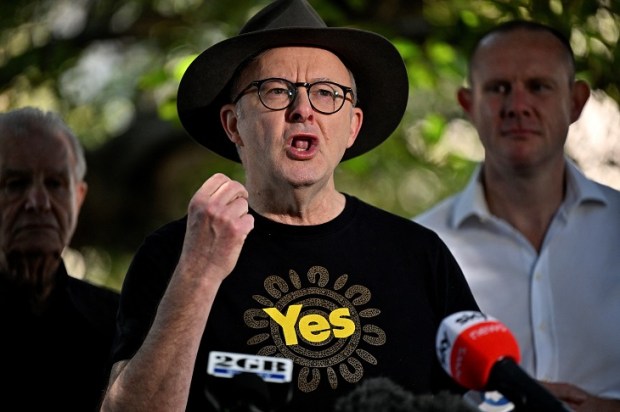News and social media loves a good ‘vox pop’; you know, the voices of those near the Main Road of any community or incident. Often heartfelt, they’re unscripted and compellingly irreverent.
I watched an average bloke grab the headlines the other week for confronting Prime Minister Anthony Albanese in a badly flood-affected town. This citizen accosted the Prime Minister with the bullishly intimate question of; ‘Where have you been last week? Overseas, I heard?’
It was uttered like you’d bait a pub pal whose stool had been vacant for a few days.
Summoning tact, the Prime Minister didn’t cite the pretty decent reason that he was offshore trying to rebuild diplomatic and billion-dollar trade relationships with China’s Xi Jinping at the G2 summit: as excuses go, it’s not the worst one, agreed?
Some weeks before, another emotionally charged citizen bailed-up New South Wales Premier Dominic Perrottet about the deficiencies of flood management and rescue responses in his locale, before unloading with a very coarse barb that authorities had ‘…done sweet stuff-all!’
Last year, Scott Morrison was variously bearded by residents who felt personally devastated by deficiencies in bushfire and cost of living pressures. CEOs Allan Joyce and NAB’s Ross McEwan have experienced similarly angry public confrontations.
Such provocative encounters – which mainstream media love to air – create problems not just for reputation managers, but also for security specialists who chaperone our celebs.
Many citizens feel emboldened and entitled to give public figures a piece of their distressed minds; and while the phenomenon presents challenges for those in the issues management game, the more acute problems are faced by those handling safety and security requirements.
How can they facilitate access yet ensure these emotive citizen exchanges won’t turn nasty quickly, as they increasingly have done in the UK and America?
This is not to diminish the frustration and helplessness felt by citizens experiencing some of life’s cruellest twists of fate: that pain is real. However, do those anxieties entitle anyone to abandon accepted standards of respect, and justify verbal or behavioural attacks on the high-ranking office-bearers in our society?
In truth, public figures attending the disaster management coalface aren’t hands-on in managing incident responses; some don’t know one end of a rescue tinny from the other.
Yet the reputation game pressurises bigwigs to attend such events, to demonstrate that concern, empathy – and additional cash resources – are being directed at the plight.
Surely they’re not there to be punch-bags for the emotional venting of the bereft and scared; especially if the clamorous content rolls into abusive or intimidating territory?
Leaders cannot easily defend themselves when being publicly berated or bullied by citizen confronters. They can’t use their fists because they’re tied behind their backs or lodged in their mouths, and I suspect many citizens are somewhat emboldened by this knowledge.
Should Australia see the wholesale adoption of American norms as they apply to political, or commercial sectors, how long is it before we suffer our own Gabby Giffords, David Amess, or Jo Cox situations?
The rise of the citizen confronter calls for serious pre-planning between issues advisers and security management specialists. They must profile and minimise the risk and threat matrix for any public event where angry stakeholders felt determined to vent frustrations.
Should citizen venting escalate, there’s an inevitability that crisis advisers and security strategists will rethink how accessible or available they are prepared to let leaders be at public events. And that will be a shame for democracy and public engagement, which will be rendered poorer if citizen confronters favour or ramp up increasingly robust clashes.
Not meaning to be trite, but long ago an Aussie politician de-escalated a citizen heckler in a marvellously pointed way: the portly, Scots-born Aussie Prime Minister George Reid was a popular figure, especially when giving public orations. On one occasion, a larrikin pointed at Reid’s bulging belly and asked what he would call ‘the baby’: ‘If it’s a boy I’ll call it after myself. If it’s a girl I’ll call it Victoria,’ Reid answered. ‘But if, as I strongly suspect, it’s nothing more than piss and wind, I’ll name it after you.’
If any citizen simply feels entitled to vent their spleen to a leader stepping onto ‘their turf’ shouldn’t the leader be equivalently entitled to respond similarly brusquely? Well, no!
If today’s leaders tried that kind of candid reply in the face of citizen ire today, the ensuing public uproar would necessitate a security intervention and the media furore would likely signal the end of their career; one way or another.
Melbourne-based Gerry McCusker is the author of ‘Public Relations Disasters’ and the owner of crisis simulation and crisis planning technology, The Drill.

























